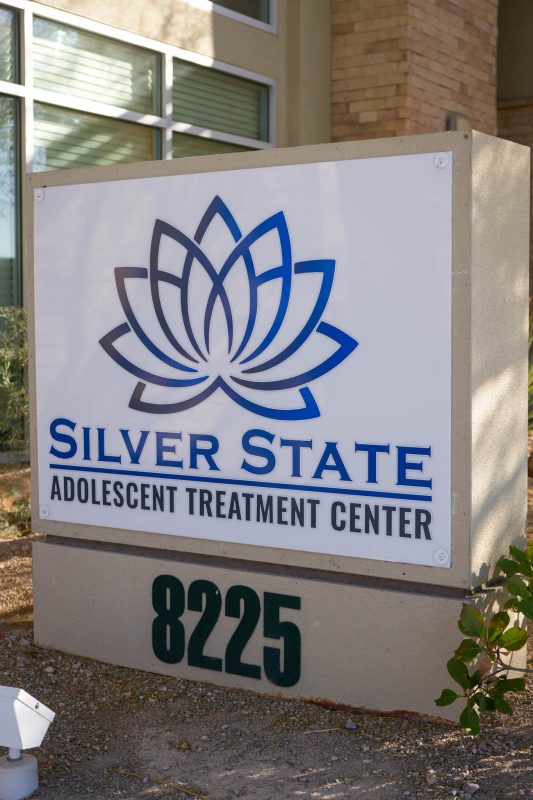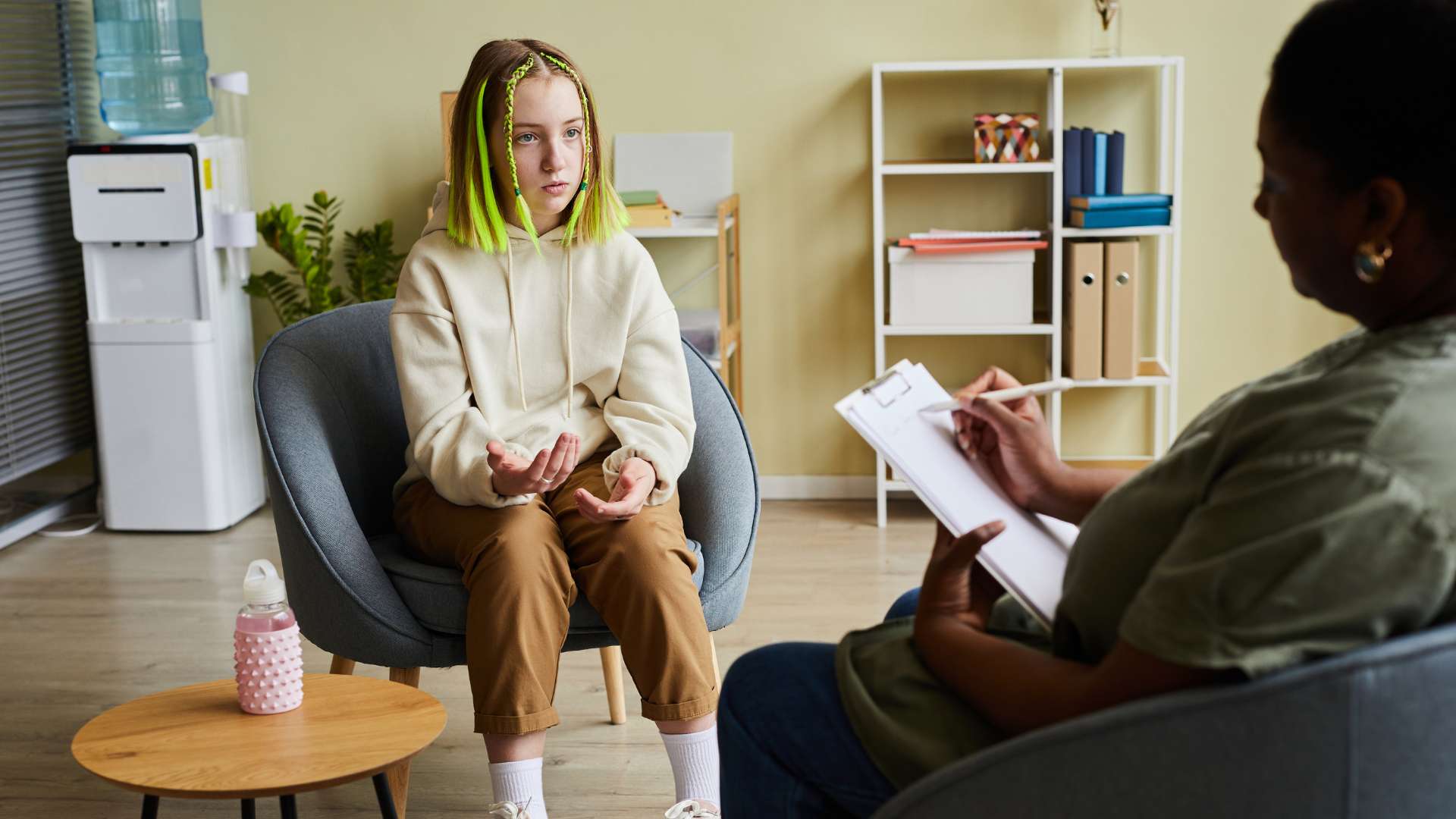Teen Conduct Disorder (CD) Residential Treatment Program
Silver State Adolescent Treatment provides expert residential care for teens struggling with Conduct Disorder (CD). Our program addresses chronic aggression, rule-breaking, and destructive behavior using evidence-based therapy, consistent structure, and family involvement. We help teens build accountability, emotional control, and respect for themselves and others.
What We Do

Behavioral Therapy

Occupational Therapy

Social Skills Training
Conduct Disorder (CD) Treatment Program for Teens
Conduct Disorder is a serious behavioral condition that can lead to risky, harmful, and sometimes violent behavior. Teens with CD may break rules, violate the rights of others, and show little remorse for their actions. Without early intervention, these behaviors can lead to academic failure, legal trouble, and long-term consequences.
At Silver State Adolescent Treatment, we provide a structured and therapeutic residential program designed to meet the unique needs of teens with Conduct Disorder. Our environment offers clear expectations, firm but compassionate boundaries, and a focus on personal accountability.
Through a combination of therapy, skill-building, and consistent routines, we help teens reduce harmful behaviors, improve emotional control, and begin making safer, healthier choices.


What is Conduct Disorder (CD)?
Conduct Disorder is a behavioral and emotional condition characterized by a consistent pattern of aggressive, deceitful, or law-breaking behavior. It goes beyond the typical boundary-testing of adolescence and often includes serious violations of social norms and the rights of others.
Common behaviors include physical aggression, cruelty toward people or animals, destruction of property, lying, stealing, and truancy. Teens with CD may appear angry, manipulative, or unemotional, but these behaviors often stem from underlying trauma, attachment issues, or other mental health challenges.
At Silver State, we take a trauma-informed, relationship-based approach. Our goal is to help teens uncover what’s driving their behavior, take responsibility for their actions, and develop the tools they need to change.
Signs and Symptoms of Conduct Disorder (CD)
Conduct Disorder often begins in early adolescence and becomes more serious over time. Warning signs may be mistaken for typical teenage rebellion, but the intensity and consistency of these behaviors signal something deeper.
Common signs include:
Persistent lying or stealing
Frequent physical fights or bullying
Truancy or running away from home
Cruelty to animals or others
Vandalism or property destruction
Lack of empathy or remorse
If your teen exhibits these behaviors regularly and they are escalating, residential treatment may provide the structure and intervention needed to create real change.


Why Individualized Plans Matter for Teens with CD
Teens with Conduct Disorder have unique needs that can’t be addressed through discipline alone. At Silver State, we begin with a comprehensive evaluation to understand each teen’s behavior, emotional state, family dynamics, and any co-occurring mental health concerns.
Each teen receives a personalized treatment plan that includes behavioral therapy, academic support, social skill development, and family involvement. We also provide ongoing evaluation and support to adapt the plan as the teen grows through the program.
Our goal is to help each teen make meaningful progress—not just in how they act, but in how they think, feel, and relate to others. With the right structure, support, and accountability, lasting change is possible.
The Silver State Adolescent Approach
Teens with Conduct Disorder need a high level of structure, supervision, and emotional support. At Silver State, our residential program provides just that—while also offering hope and healing for the whole family.
We use a trauma-informed, evidence-based approach that balances firm expectations with compassion and connection. Our therapists, counselors, and staff work as a team to ensure every teen receives the consistency they need to build trust and grow.
In addition to individual and group therapy, we include family therapy, educational support, and life skills development. We guide teens through real change—teaching them to manage anger, respect others, and build a future they can be proud of.
Healing from Conduct Disorder takes time, but with the right team, the right environment, and a commitment to growth, transformation is possible.
Contact Silver State Adolescent Treatment
Please fill out the form to get started and someone from our admissions team will be reaching out to you shortly.

Teen Mental Health Disorders We Treat
FAQs About Teen Conduct Disorder (CD) Residential Treatment
No. CD is a diagnosed mental health disorder requiring professional treatment, not just discipline.
ODD involves defiance and hostility. CD includes more severe behaviors like aggression, theft, or cruelty.
Not necessarily. With early and effective intervention, many teens improve significantly.
Aggression, property destruction, deceit, theft, school suspension, and lack of empathy.
With a combination of behavior therapy, trauma-focused care, DBT, family therapy, and academic support.
Yes. We offer on-site academics with licensed teachers to help teens stay on track.
Teens with CD often need therapeutic interventions, not just consequences.
No. It’s a complex disorder influenced by multiple factors.
If safety is a concern, residential treatment can help stabilize behavior.
Behavioral therapy is key, but family involvement and structure are also critical.
It’s never too late. With the right support, change is possible.
Get Started
At Silver State Adolescent Treatment, we understand how important your questions and concerns are. For immediate assistance or detailed inquiries, please fill out our contact form so our team can respond quickly.
Our compassionate staff is here to provide personalized support tailored to your teen’s needs.
You can also reach us directly using the contact information below. Together, we’ll take the first steps toward your teen’s mental health and recovery.















